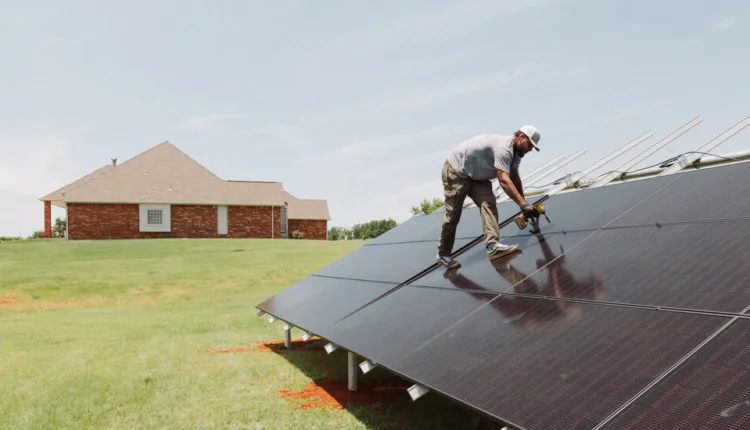
Inflation Reduction Act: Successes and Failures
TL/DR –
The Inflation Reduction Act, signed into law by President Biden in 2022, has caused sales of electric vehicles to boom but has fallen short of expectations in terms of renewable power generation. Despite record levels of renewable power and batteries being added last year, supply chain issues, local opposition, and problems obtaining permits have hindered the law’s goal of generating significantly more electricity from wind, solar, and other non-polluting sources. The Act was predicted to help cut America’s greenhouse gas emissions by roughly 40% below 2005 levels by 2030 through tax credits and spending for clean energy technologies such as wind turbines, solar panels, batteries, electric vehicles, and hydrogen fuels.
Electric Vehicle Sales Boom, Renewable Energy Growth Lags, Post Climate Law
Eighteen months since President Biden enacted a substantial climate change bill, a new analysis by three groups reveals robust sales growth for electric vehicles. However, supply chain issues and local opposition have hampered the significant expansion of electricity production via wind, solar, and other nonpolluting resources, outlined in the law. Despite a record amount of renewable power and battery additions last year, the rapid growth was insufficient to meet the objectives set to reduce the emissions causing global warming rapidly.
The Inflation Reduction Act, enacted in 2022, aimed to reduce the US’s greenhouse gas emissions approximately 40% below 2005 levels by 2030, through billions in tax credits and spending for clean energy technologies. The Act is meeting expectations in some areas, but falling short in others, according to the new assessment by the Princeton-led REPEAT Project, the research firm Rhodium Group, and Energy Innovation—a nonprofit organization.
Electric Vehicle Sales and Challenges
Electric vehicle sales, after a 50% increase over the past year, are on track to help achieve the law’s projected emissions reductions. 2023 saw a record 9.2% of all new cars sold in the US being fully electric or plug-in hybrid models, aligning with analysts’ predictions post-law. There is uncertainty, however, about the continuation of this high growth rate, with potential buyers deterred by high prices and lack of charging stations. Companies like Tesla are already warning that sales growth will likely slow in the near term. However, a sales increase of between 30 and 40 percent in 2024, although slower than last year, would align with the law’s emissions targets.
Renewable Energy: A Mixed Picture
Renewable power’s picture is mixed. Last year, the US added a record 32.3 gigawatts of electric capacity from solar panels, wind turbines, and batteries. However, the projected addition of 46 to 79 gigawatts of carbon-free electricity annually in 2023 and 2024, according to analysts, is off track, with the US falling behind schedule in deploying new clean electricity sources.
Wind and solar project face massive logistical hurdles. Long waits for grid connection and opposition from local residents, as well as snarled supply chains and shipping restrictions, are hampering progress. The study found that to meet emission reductions, the US would need to add 70 to 126 gigawatts of renewable electricity capacity each year between 2025 and 2030, a daunting increase from current levels.
Investments in Domestic Clean-Energy Manufacturing
The Inflation Reduction Act also provided substantial tax credits for domestic manufacturing of batteries, solar panels, wind turbines, and other technologies. This provision has resulted in $44 billion of investments last year in domestic clean-energy manufacturing, with more expected in the future.
Other aspects of the law, such as tax credits for businesses that build advanced nuclear reactors or create hydrogen fuels using renewable electricity or devices to capture and bury CO2 emissions, will take longer to show an impact. While various companies are developing such projects in the US, none have been built yet.
—
Read More US Economic News
